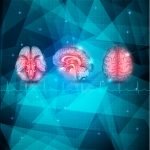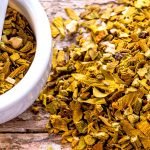Gluten Rock and Colitis Blues
The Kenny Davin Fine Interview
Mark Swanson, ND
Like his music, Dr Kenny Davin Fine is a lot of things to a lot of people: medical doctor and researcher, gastroenterologist and nutritional expert, public health servant, Internet medicine pioneer, and singer-songwriter and guitar-harmonica player. As a highly accomplished MD, he has been professionally involved in patient care, medical research, teaching, direction of clinical laboratories, nutritional pioneering, and public health for more than 20 years. He is the founder and current director of EnteroLab clinical reference laboratory and the nonprofit Intestinal Health Institute in Dallas, Texas, where he has furthered his groundbreaking research and offers diagnostic laboratory tests for intestinal disorders and gluten and other food sensitivities.
Welcome to The Expert Report, Dr Fine. Quoting from your Web site (www.kennydavinfine.com), as a high-minded medical visionary, you describe yourself as “physician-musician on a mission.” Tell us more about this, please!
Dr Fine: Well, I am clearly a physician by professional trade, and I am a musician by hobby and now more recently by second profession. It has become clear to me artistic creativity benefits our lives in all areas. Therefore, I have set out to combine my passion for singing, songwriting, and playing music with my passion for medical invention and public education.
How did you become an expert on nonceliac gluten sensitivity (NCGS) and microscopic colitis (MC), then eventually starting EnteroLab?
Dr Fine: At the beginning of my gastroenterology fellowship working with one of the greats in my field, Dr John Fordtran, I was assigned a project to help understand why rare individuals with a syndrome known as refractory sprue almost always had microscopic colitis as well. It followed after about 6 years of individual research of the histopathological, epidemiological, clinical, and genetic overlap and similarities of MC in the colon with celiac sprue of the small intestine that the only explanation for these similarities was that people with MC must be gluten sensitive but not celiac by small intestinal biopsy. However, there was no way to prove this with standard technology. Knowing that we had found in our research that 70% of patients with MC had mild small intestinal inflammation and villous abnormalities and knowing that the research of Dr Anne Ferguson had shown that such individuals could be proven to have intraintestinal antigliadin antibodies following jejunal intubation, I hypothesized that these intestinal antigliadin antibodies could also be found in the stool and therefore prove that these patients were indeed nonceliac gluten-sensitive individuals. The success of this search, the development of this technique, and the strong interest of patients with MC to have this test performed were responsible for the opening of EnteroLab.com as a facility for such patients and other patients with the potential for NCGS to be tested.
From a historical outlook, where along the time line did gluten start having a sensitizing effect on the human organism? How has this affected people physically, mentally, emotionally, and even spiritually?
Dr Fine: We can find in the archeological record from the earliest historical times that, following adoption of an agrarian society based mainly on the growing and consumption of grains, humans became shorter, more frail-boned, and arthritic and possessed dental caries for the first time. Thus, it appears that the immune-stimulating nature of grains in general, particularly those which contain gluten, as well as the relatively nutrient-poor nature of the grain-based diet, had its effect early on. In more recent times (in the last 50-100 years), extensive hybridization of wheat in particular to contain more gluten, as well as development of a chemical-based society, which has caused much in the way of immune stimulation, have rapidly escalated the degree to which gluten-containing grains are immune stimulating and that the human immune system vigorously responds. As far as its emotional effect, there is extensive documentation of the depressive, schizophrenic, dementive, and fatigue-causing effects of consuming gluten-containing grains. Spiritually, I can only conjecture to say that while “bread” was once the staff of life, by our mismanagement of this gift from G-d (by disobeying the Old Testament directive to never plant grain seeds in close proximity to each other so as to avoid hybridizations), grains and the “bread” that is derived from them are no longer nourishing our minds, bodies, and souls. What this means for the future of nutrition in general, and spiritual nutrition specifically, time will tell sooner than later.
Do you consider gluten an antinutrient or more of a protein bully that needs some discipline and guidance?
Dr Fine: I would have to generalize by saying, similar to what I just said, that grains had a very important role in the history and evolution of human civilization by allowing calories derived from agriculture to be grown in surplus and stored, thereby feeding many, many more people than the more prehistoric hunter-gatherer way of life. It was in this way that civilization came to be as we know it, as well as allowing populations to flourish by a combination of a decreased birth interval and the allowance of feeding more people in a smaller geographic area. Simultaneously, however, this occurrence can also be traced as being responsible for almost all of the negative by-products of historic civilization (disproportionate laws between classes and wars and crimes over power, money, and territory), as has been eloquently documented by Dr Jared Diamond in his Pulitzer Prize–winning book Guns, Germs, and Steel. Thus, I feel that we are now witnessing a necessary dietary paradigm shift away from the consumption/overconsumption of calorie-dense nutrient-poor grain foods to a more nutrient-rich organically grown energetically live-based diet. Those that are able to change with these times are the only ones that will secure nutritional health and everything that goes along with that from these times forward. The epidemic of obesity in Western civilized countries is clearly evidence that the recent/old dietary paradigm is failing. Thus, I can say that gluten itself is somewhat the Frankenstein monster of the dietary antigenic world and is dangerous from a combination of its inherent structural antigenicity and the technical changes in the grain, our social environment, and to some extent ourselves.
How do NCGS and MC relate to autoimmune and allergy medicine?
Dr Fine: MC should be viewed as just one of a long list of classic immune or autoimmune disorders that accompany an underlying autoimmune NCGS. Furthermore, people with MC have been known for years to possess many if not all of the associated autoimmune syndromes that have classically been known to accompany classic celiac sprue. This autoimmunity has been fully explained in association with the secondary autoimmune reaction to the human enzyme tissue transglutaminase that follows the primary immune reaction to dietary gluten/gliadin itself.
Can you comment on the specific tests that are performed at EnteroLab for the diagnosis of NCGS and microscopic colitis and why you offer these in particular.
Dr Fine: It was my original and current desire that EnteroLab would provide in-home testing in such a way that people with chronic intestinal symptoms and/or disorders, especially those associated with chronic diarrhea, could receive the kind of testing normally reserved for tertiary referral hospitals without the fear, expense, nuisance, and risk of having to travel to such an institution. Furthermore, making these tests available to both the general public and referring practitioners on the Internet was, in my opinion, the major initiation of breakthrough in a previously uncharted frontier. All of the tests available at EnteroLab.com are tests that we have pioneered and developed through following decades of medical research, including, but not limited to, our internationally patented fecal tests for IgA against gliadin and other food antigens. It is the presence of fecal antigliadin IgA in particular that lends to the diagnosis of NCGS, but tests for intestinal fat malabsorption, intestinal inflammation via lactoferrin, and genetic evaluation of the immune system genes related to immune reactions to food are uniquely complementary in this regard. Because it has been known since the advent of allergy testing for food sensitivity in the 1960s that people who have gluten sensitivity are commonly immune sensitive to other foods, we have offered and are currently expanding our offering of fecal IgA testing against other antigenic foods.
What analytical methods do these tests involve?
Dr Fine: Fecal IgA against gliadin and other food antigens and a microscopic analytical method for quantifying fecal fat output (obviating the need for 48- to 72-hour stool collections). Our lactoferrin test uses fecal neutrophils, being the most useful to the chronic diarrhea setting. The fecal elastase test for exocrine pancreatic enzyme insufficiency and collection of genetic material via buccal swabbing and full locus typing for HLA-DQB1 for both CS [celiac sprue] and NCGS.
You also developed a new treatment regimen for microscopic colitis. Our readers would greatly appreciate having you outline some clinical pearls on this.
Dr Fine: Like all colitis, MC is the immune system’s chronic reaction and rejection of the fecal content. While the extent that this is related to the presence of dietary gluten reaching the colon is currently unknown, a gluten-free diet alone can bring long-term benefit to patients with MC in 70% to 80% of cases. Additionally, removal of dairy products, other grains, large sources of dietary yeast, and in rare cases eggs brings resolution to the remainder. These dietary eliminations are always more successful when accompanied by beneficial alteration of the colonic flora. Thus, administration of a quality probiotic supplement is recommended to patients with colitis. Recently, I developed a unique fiber supplement derived from organic blueberries. My intent originally was to create an antioxidant-rich intestinal fiber supplement. However, it was the favorable reaction that I had personally while consuming this product (or large amounts of fresh blueberries) that led me to hypothesize that blueberries or blueberry fiber could be or would be highly beneficial to people with inflammatory bowel disease because of the favorable effect it seemed to have on the intestinal flora and stool character. Early proof of this hypothesis has come from a study out of Sweden that showed a highly beneficial effect of blueberry fiber, especially when combined with probiotics, in rodents with colitis [Håkansson A, Bränning C, Adawi D, et al. Blueberry husks, rye bran and multi-strain probiotics affect the severity of colitis induced by dextran sulphate sodium. Scand J Gastroenterol. 2009;44(10):1213-1225.].
Besides a gluten-free diet, are there any oral enzymes, plant extracts, probiotics, or other supplement recommendations for gluten sensitivity?
Dr Fine: Before it became somewhat common as it is today, I hypothesized back in the 90s that probiotics would indeed be preventive and/or protective of the small intestine against immunological reaction to dietary gluten and/or other antigens. While I cannot quote any specific studies, I believe they have been performed, and this concept has gained wide popularity. I am familiar with studies that do support that meal supplementation with digestive enzymes ensures maximal digestion of dietary protein, which can minimize immune reactions to such proteins. Thus, I have come to personally utilize both probiotics and dietary enzymes in my health regimen. While I do not generally recommend nutritional supplements, favoring food-based nutrition over what I call “health in a bottle,” regular maintenance that promotes anti-inflammatory probiotic intestinal contents seemingly does the body good in this day and age.
Tell us a little about your music career and mission?
Dr Fine: I don’t think I can say it better than the bio on my music Web site www.kennydavinfine.com: “His music stems from decades of musical influence. Lyrical mastery, vocal smoothness, and the musical sounds of classic rock, country-rock, and blues combine to create the basic elements of the Kenny Davin Fine sound and song. When the good doctor is not treating patients, conducting medical research, or developing new health products, this musical MD is in the recording studio laying down tracks!” My most recent recording sessions were with Grammy honoree John Hampton at Ardent Studios in Memphis. For Want of Higher Ground: A Musical Road Map to the Higher Truth of Health is my trademark musical lecture, best described as “a unique experience imparting knowledge and inspiration, striking the perfect balance between important scientific health information and the healing power of music.”
What unique messages do you bring through the healing power of words and music for people suffering from gluten intolerance, microscopic colitis, and other enteropathology?
Dr Fine: I would not limit the benefit of anyone’s supportive words or music for health, happiness, and hope to those with GS [gluten sensitivity], MC, or enteropathology. The healing benefits are available to all. The universal message can be summarized as: For a healthy self, we must heal by self, and to do this we must heal from the spirit out.
Dr Fine, it’s been enlightening and a pleasure to introduce the physician-musician on a mission to my colleagues and naturopaths from across the country through this issue of NDNR. Before we close the interview, please tell us how NDs can keep updated with all that you are doing—at the lab, along your health and healing journey, and also the inspiring and spirit-touching music and songs of Kenny Davin Fine.
Dr Fine: Thank you in return, Dr Swanson. Like most people, the best way to follow my professional activities is on the Internet at www.EnteroLab.com, www.kennydavinfine.com, and www.theorganicalternative.com.
Mark Swanson, ND, writes “The Expert Report” column, which is featured in NDNR. Dr. Swanson has over 25 years experience as chief medical advisor, research and technical consultant, and products formulations expert to leading practitioner brand supplement manufacturers. He is a former associate editor for the American Journal of Naturopathic Medicine, national product director, and published researcher. He is a pioneer graduate of Bastyr University, 1984. Dr. Swanson has his private practice specializing in Preventics Care and Functional Medicine, in Sequim, Washington. Contact: [email protected]









